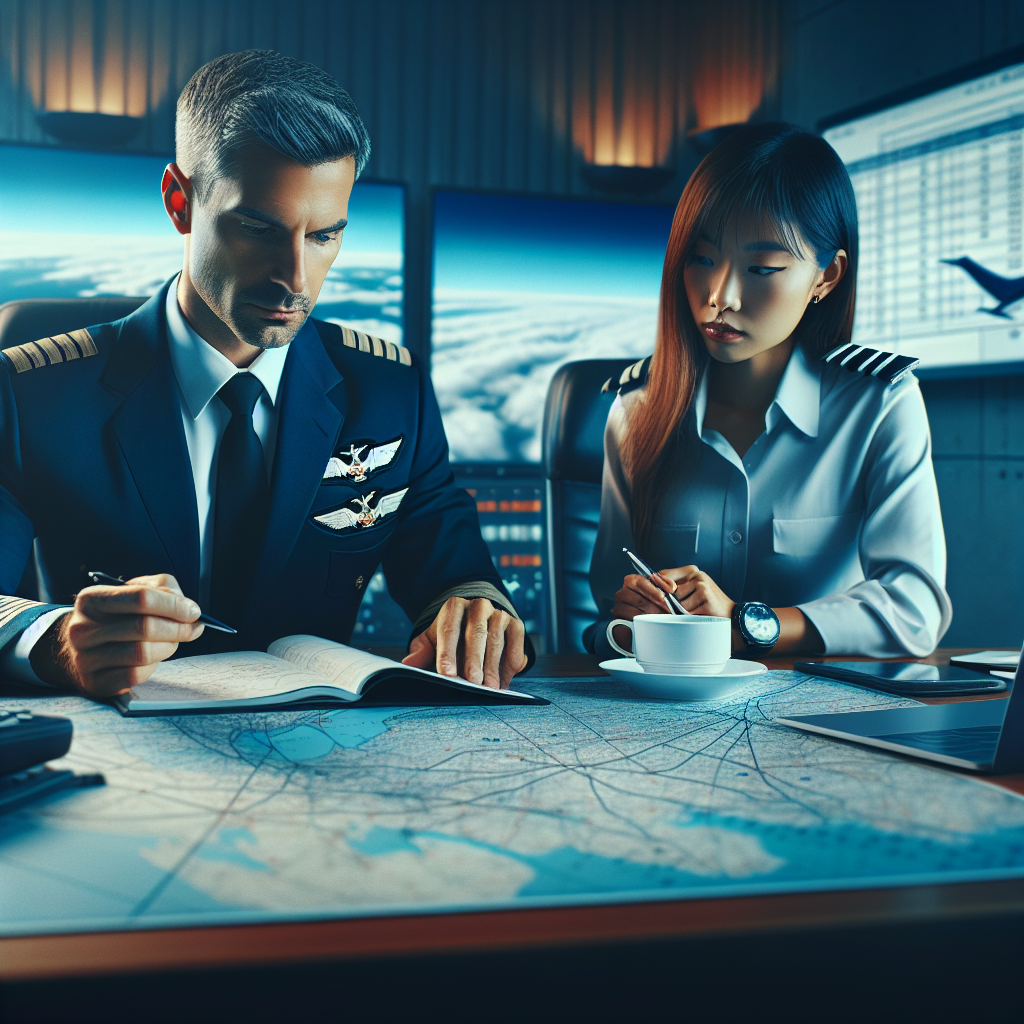After a flight, whether it be a smooth journey or a turbulent one, it is important for pilots to take some time to debrief and reflect on their experience. This process is invaluable in helping pilots process what happened during the flight, identify any issues or challenges that arose, and make any necessary adjustments for future flights.
Debriefing after a flight is a critical step in the aviation industry as it allows pilots to discuss and analyze their performance, as well as identify any areas for improvement. It also provides an opportunity for pilots to share their experiences with other crew members, learn from each other, and ultimately enhance their skills and knowledge.
During the debriefing process, there are several key areas that pilots should focus on to ensure a comprehensive review of the flight. One of the first things to consider is the overall flight performance. Pilots should evaluate how well they managed the aircraft, adhered to standard operating procedures, and responded to any unexpected events or challenges.
Additionally, pilots should discuss the communication and coordination among the crew members during the flight. Effective communication is crucial in aviation, as it ensures that all crew members are on the same page and are working towards a common goal. Pilots should evaluate whether communication was clear, concise, and timely, and identify any areas where improvements can be made.
Another important aspect to consider during the debriefing is decision-making. Pilots should reflect on the decisions they made during the flight, whether they were the right ones given the circumstances, and if there were any alternative options that could have been considered. Evaluating decision-making skills is essential for enhancing situational awareness and improving overall safety in the cockpit.
Furthermore, pilots should discuss any technical issues that arose during the flight, such as equipment malfunctions or system failures. By addressing these issues in the debriefing, pilots can identify any patterns or recurring issues that may require further attention or training.
Lastly, pilots should take the time to reflect on their own emotions and mental state during the flight. Flying can be a stressful and demanding profession, and it is important for pilots to be mindful of their mental well-being. Debriefing provides an opportunity for pilots to discuss any concerns or anxieties they may have experienced during the flight, and to seek support from their colleagues if needed.
In conclusion, debriefing after a flight is an essential part of the aviation industry that allows pilots to reflect on their performance, identify areas for improvement, and enhance their overall skills and knowledge. By focusing on key areas such as flight performance, communication, decision-making, technical issues, and mental well-being, pilots can ensure a thorough and effective debriefing process that ultimately contributes to safer and more efficient flying practices.
After a long flight, it can be tempting to rush off to your next destination or start your vacation right away. However, taking the time to debrief and reflect on your flying experience can be incredibly beneficial. Debriefing allows you to process what happened during your flight, identify any issues or concerns, and make any necessary adjustments for future flights.
One key thing to focus on during your debriefing is the overall flight experience. Consider how the flight went in terms of comfort, service, and overall satisfaction. Were you comfortable during the flight? Did you receive good service from the flight attendants? Were there any issues that arose during the flight that need to be addressed? By reflecting on these questions, you can identify any areas that may need improvement for future flights.
Another important aspect to consider during your debriefing is your own behavior during the flight. Reflect on how you interacted with the flight crew and other passengers. Were you courteous and respectful? Did you follow all safety guidelines and instructions? Did you experience any moments of stress or anxiety during the flight that could be addressed in the future? By reflecting on your behavior, you can identify any areas where you may need to make adjustments in order to have a more positive flying experience in the future.
Finally, it is important to debrief on any specific events that occurred during the flight. Did you encounter any turbulence or other disruptions that made you feel uncomfortable? Did you experience any delays or issues with your luggage? Reflecting on these specific events can help you prepare for similar situations in the future and make any necessary adjustments to your travel plans.
Overall, taking the time to debrief and reflect on your flying experience is a valuable practice that can help you have a more enjoyable and stress-free travel experience. By focusing on the overall flight experience, your own behavior, and any specific events that occurred, you can identify areas for improvement and make necessary adjustments for future flights. So the next time you fly, be sure to take some time to debrief and reflect – your future self will thank you!

